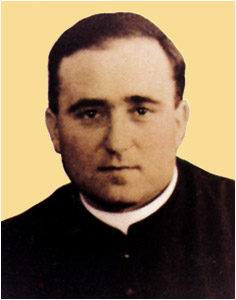 Fr. Ambrose Grittani lived and worked in the first half of 20th century, taking on the situations of poverty, moral and social degradation, consequences of an era crossed by two world wars.
Fr. Ambrose Grittani lived and worked in the first half of 20th century, taking on the situations of poverty, moral and social degradation, consequences of an era crossed by two world wars.
Fr. Grittani was born in Ceglie del Campo on 11th October 1907, to the family of Michele Grittani, a dynamic merchant of the town, and Chiara Carone, daughter of landowners in Bitritto. Last of six children, even though he had been an orphan of a father since the first months of his life, he seemed to have inherited from him the jovial and dynamic temperament, his known generosity towards the poor and an open mind to renewal. From his mother, of whom Ambrogio had known the embrace only up to the tender age of four years, he had assimilated the values of sobriety, of duty in his commitments, sacrifice, respect of others, and solidarity of life. It was she who led Ninì, as Ambrose was called by the family, at the first meetings with Jesus the Eucharist and the first gestures of altruism towards the poor.
The day of the First Communion marked - as he wrote - the beginning of a "strong friendship" and of an "eternal bond", sealed by a "pact of love" in which the boy became the "little crusader of Jesus", he was committed to spreading the Faith, Purity and Love to the Eucharist and to raise the poor of the earth (The little crusader of Jesus).
In 1918, he entered the archiepiscopal seminary of Bari, where the vivacity of character found equilibrium with the inclination to reflection and prayer.
In 1924, he gained entrance into the Pontifical Regional Seminary of Molfetta. The intense years of preparation for the priesthood and theological formation were marked by a profound spiritual commitment and a keen interest in the political, social and cultural issues of the time.
So, he prepared himself for the priesthood with all the impulse of his daring temperament: "Having become a priest I will have to launch myself under any form of ministry, to the conquest of souls".
On 25 July 1931, Fr. Ambrose was ordained priest in the Parish of Saint Joseph, in Bari. A few months later, on October 10, 1931, he graduated in theology at the theological college of the Roman University of Studies and after two years of apostolate as vice parish priest of the Mother Church of Bitritto, in November 1933 he moved to Milan to attend the faculty of classical letters at the Catholic University of the Sacred Heart. Fr. Ambrose knew how to integrate cultural formation with apostolic experiences in some parishes of the city. Already attracted by the Eucharistic mystery, he found a way, at the Catholic University, to deepen his knowledge and spiritual experience, in an environment in which the perpetual adoration of the Blessed Sacrament constituted the spiritual source of all cultural and Christian formation. In fact, Fr. Ambrose wrote, on the occasion of the Catholic University Day, that "Jesus living in the consecrated Host is the center of renewal of the world of science, faith and politics" (A. GRITTANI, Manuscript, section 6, No. 5, p.1)
In the following years, he was able to reconcile the teaching of Latin in the Regional Seminary of Molfetta with the pastoral collaboration in the Parish of the Sacred Heart. The dynamism and joviality of his character, the radical nature of his lifestyle, the evocative power of his oratory, the genius of pastoral initiatives, the care of the poor and the suffering, aroused innumerable sympathies, but also the envy of someone who began to torment him with anonymous letters.
Fr. Ambrose did not let himself be intimidated, but he was able to read in the events a further call to scrutinize God's plan more closely.
It was in Assisi, during a course of spiritual exercises in August 1941, that he, in the desire to participate more intimately in the Eucharistic mystery, matured the intention of devoting himself totally, to the poorest of the time, to beggars. In that climate of reflection and prayer, in fact, the memory of an episode lived during the first years of priesthood in Bitritto, which had profoundly marked him, emerged from his memory. One evening some women of the village had turned to him to bring the comfort of “Extreme Unction” (Sacrament of the Sick) to an old and dying beggar. In the eyes of Fr. Ambrose, immediately approached, a gruesome spectacle presented itself: a man at the end of his life was lying in the manger next to the beasts and under his head, he had some straw to which some unscrupulous boys had set fire.
Fr. Ambrose comforted the agony of the defenceless poor who died an hour later.
That stable, that manger, that beggar recalled to the mind and heart of Fr. Ambrose the mystery of the life of Jesus, who as a rich man made himself poor to enrich the man of his divine life.
Fr. Ambrogio perceived within himself the divine call to a more radical poverty.
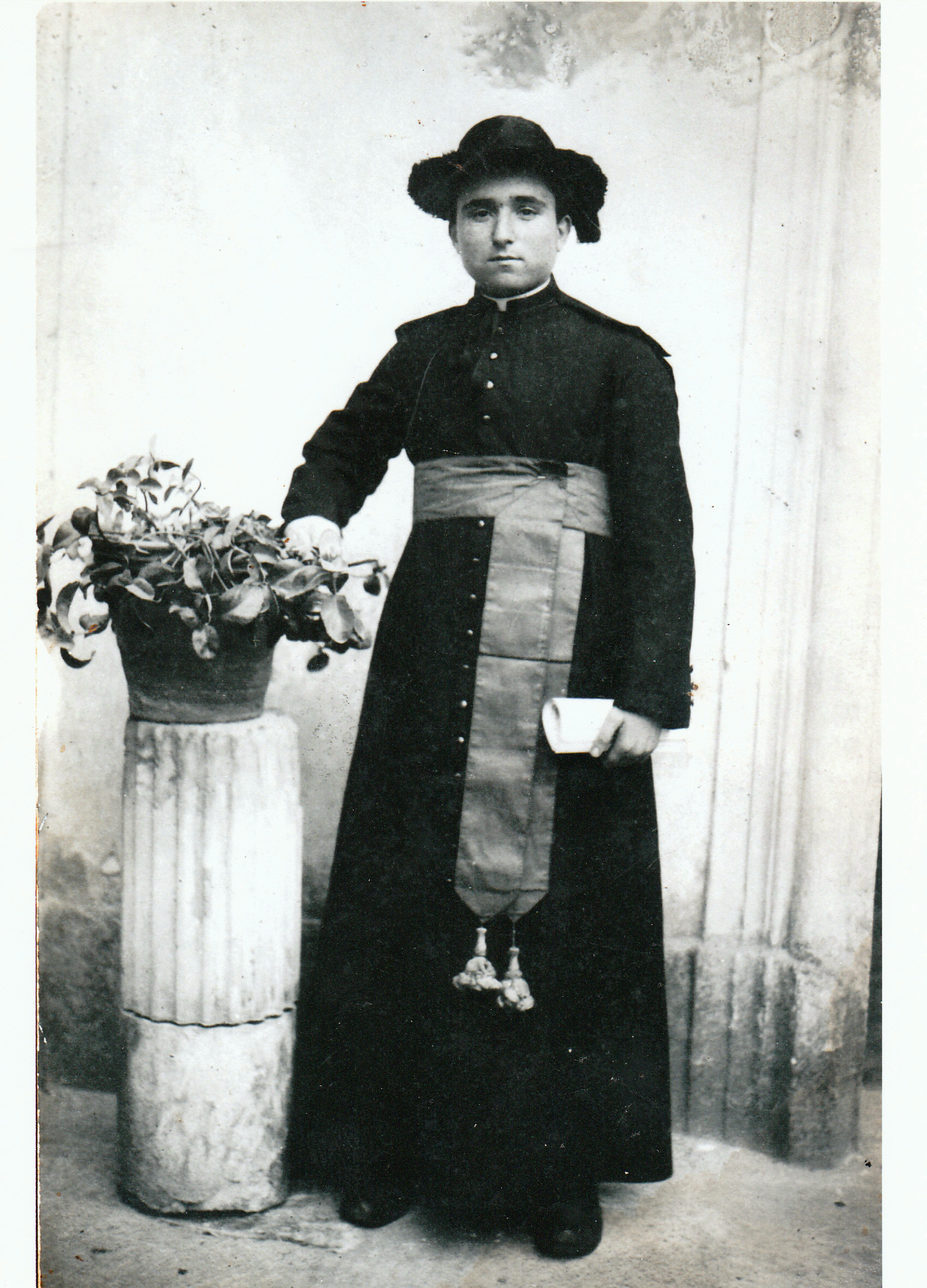
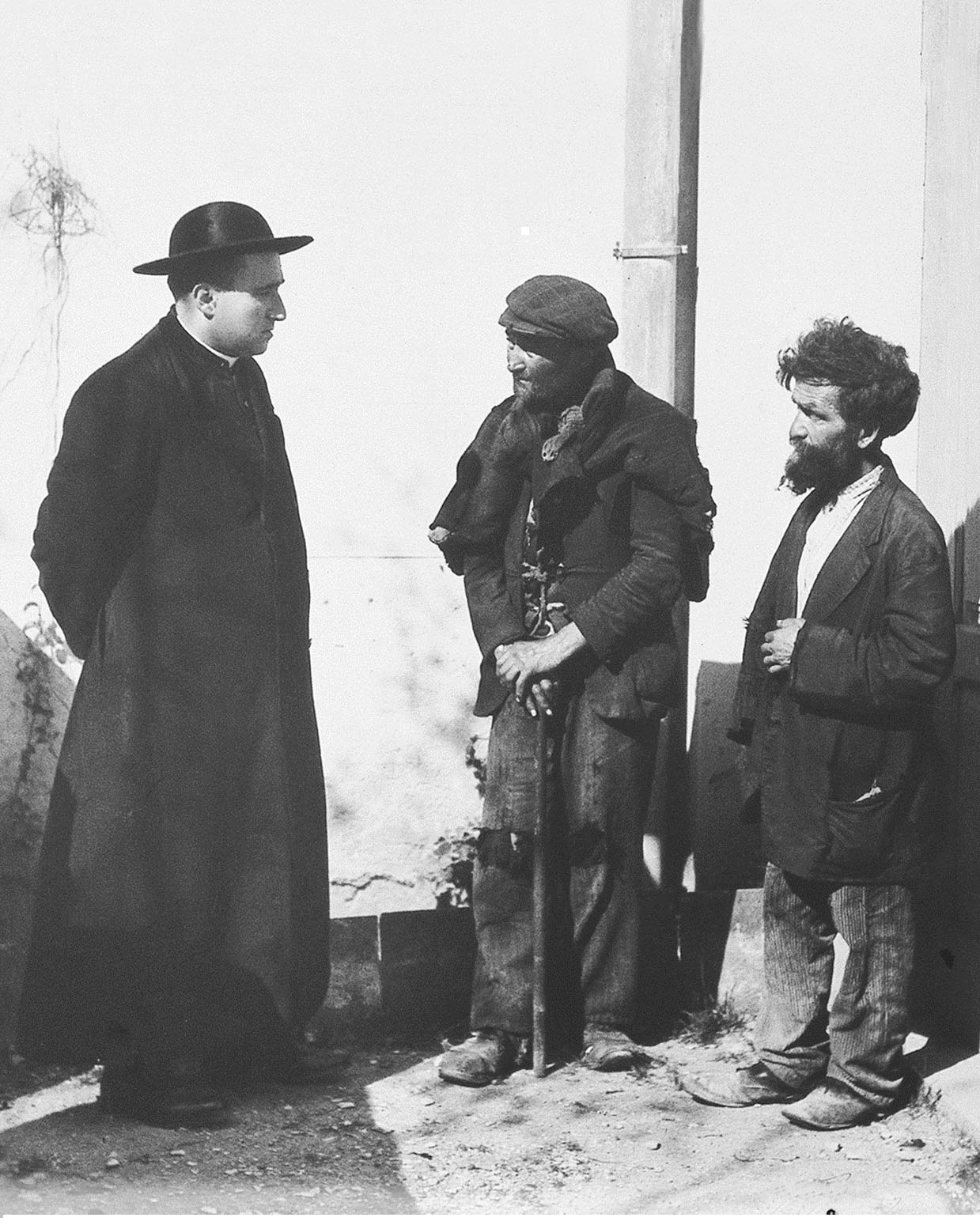
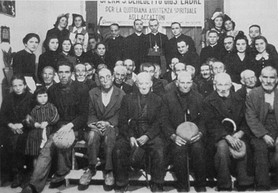

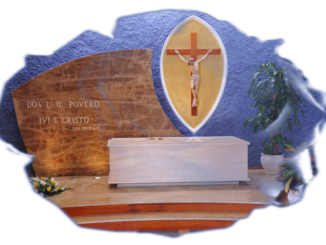
Be the first to comment